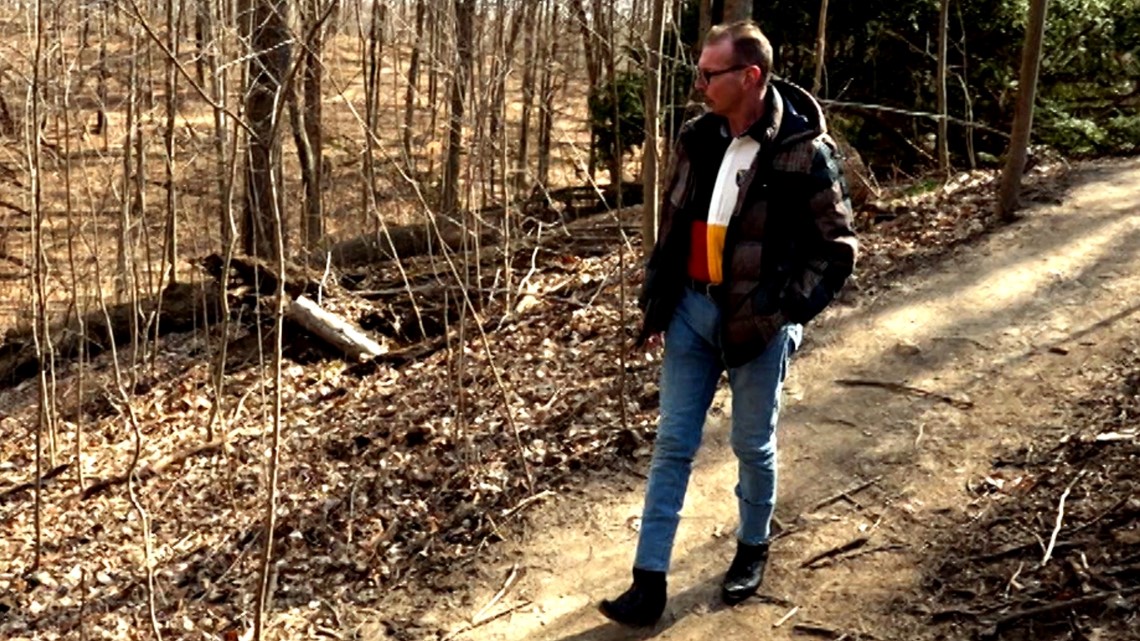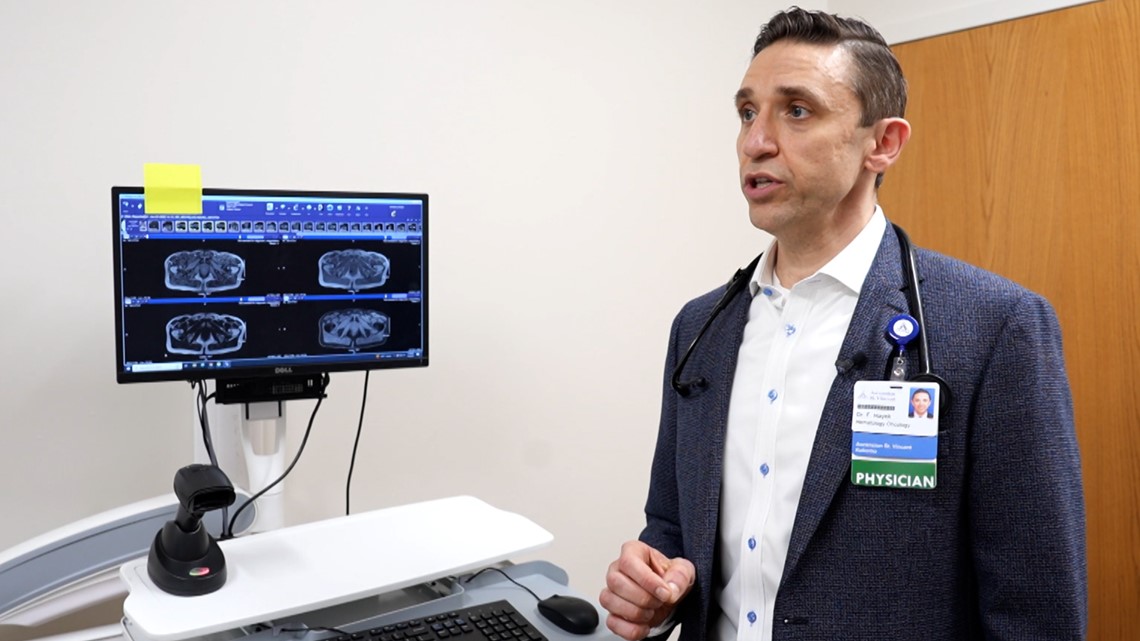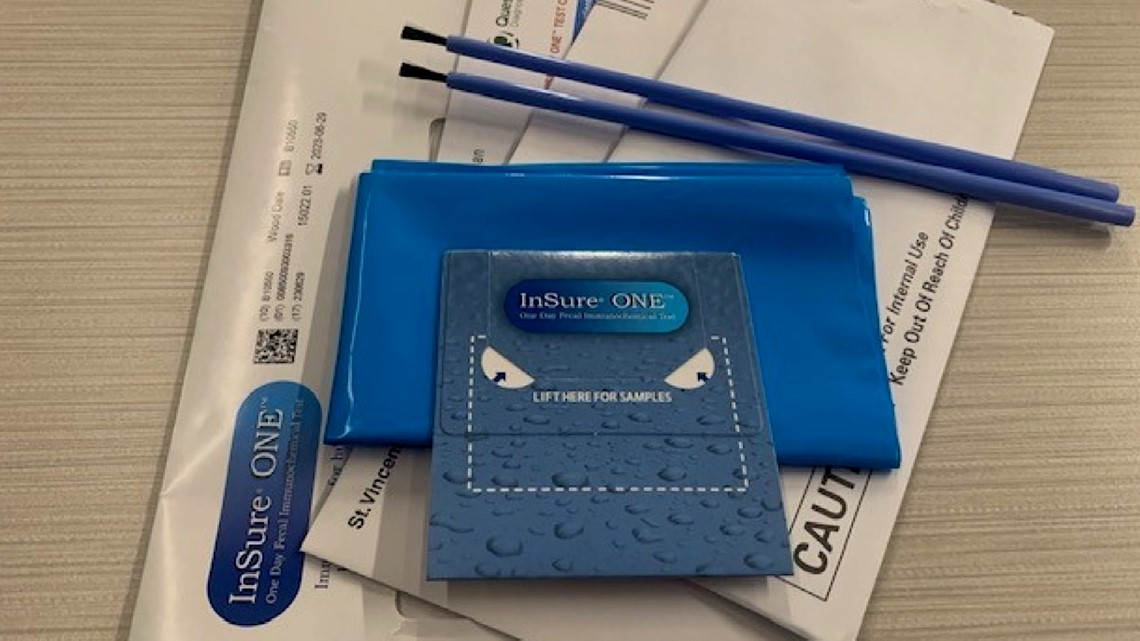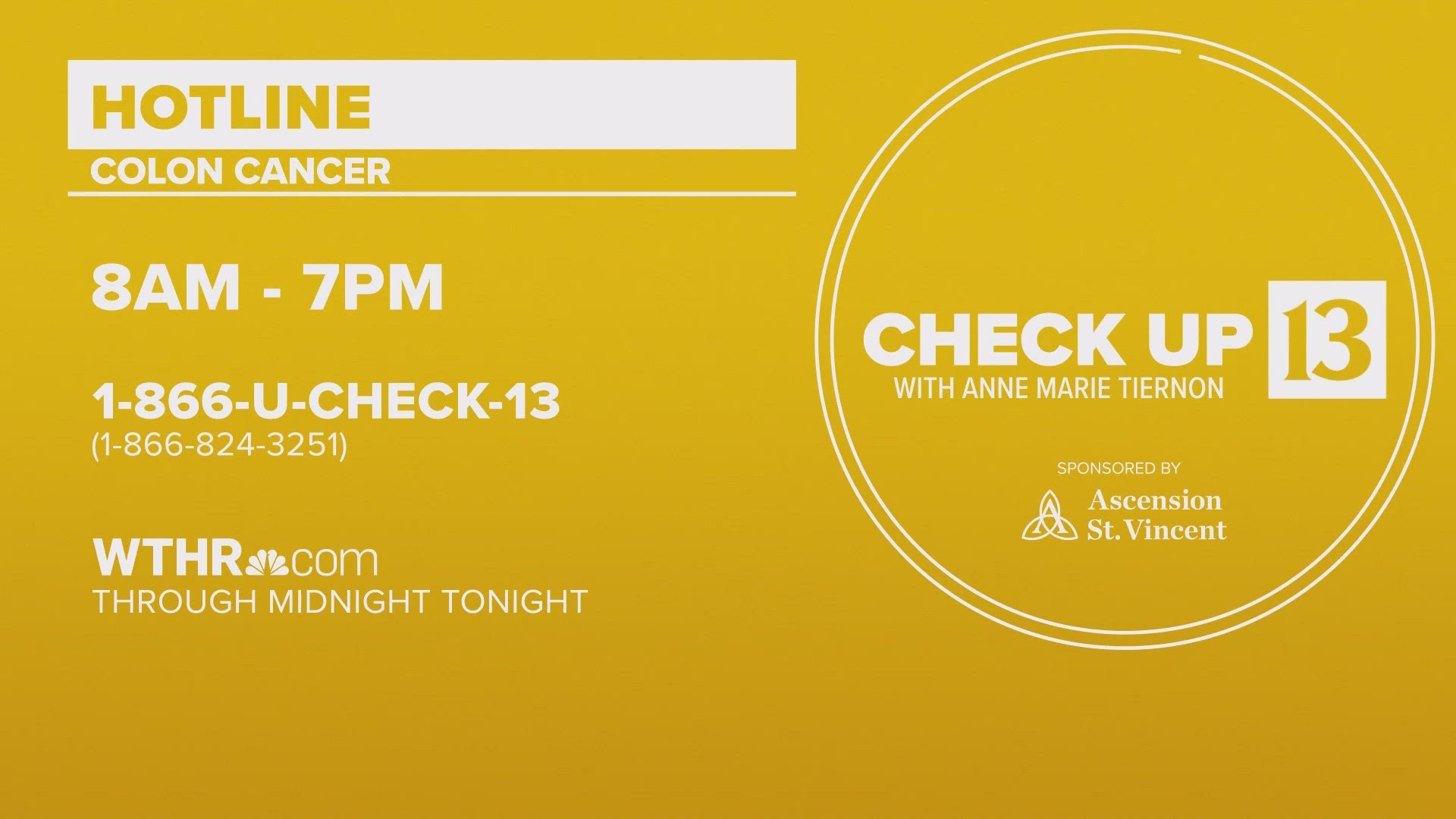KOKOMO, Ind. — The CDC estimates 28% of adults aged 50 to 75 are not up-to-date with colorectal screening. The U.S. Preventative Task Force guidelines recommend a baseline colonoscopy at age 45 and even younger for those considered at-risk.
At 59, Neal Bowers-Springer knew he wasn't compliant with the recommendations, but only agreed to schedule a colonoscopy after his insurance company issued an ultimatum: schedule the screening or lose coverage.
That got Bowers-Springer's attention, and he scheduled a colonoscopy. It was during that colonoscopy last spring that doctors detected his stage 3 colon cancer.
"Life changed big time," Bowers-Springer said. "You hear the 'C-word.' All I heard was death – stage 3. I'm like, 'Oh my God,' you know, is this how it's going to end?"


He sought treatment at Ascension St. Vincent Kokomo, where Dr. Fadi Hayek helped Bowers-Springer navigate radiation, surgery, and chemotherapy treatments.
"His prognosis is pretty good, Hayek said, "He's tolerated everything that we recommended to him very well."


Bowers-Springer knows his prognosis would have been even better if he had gotten screened sooner. His goal is to encourage others to be aware of the illness, the screenings available, and the symptoms.
Colon cancer symptoms:
- A change in bowel habits
- Blood in or on your stool
- Diarrhea, constipation, or feeling that the bowel does not empty.
- Abdominal pain and aches
- Weight loss
"Colon cancer is one of the cancers where screening can actually detect cancer years before it's even felt, or it's even diagnosed, which is the beauty of screening methods," Hayek said.
The colonoscopy is the gold standard for detecting colon cancer and polyps that have the potential of developing into cancer, but for those unwilling or unable to get a colonoscopy – home kits are an option. The key is to take action.


"Do it because it could save your life," Bowers-Springer said.
Learn more about your options by clicking here.

